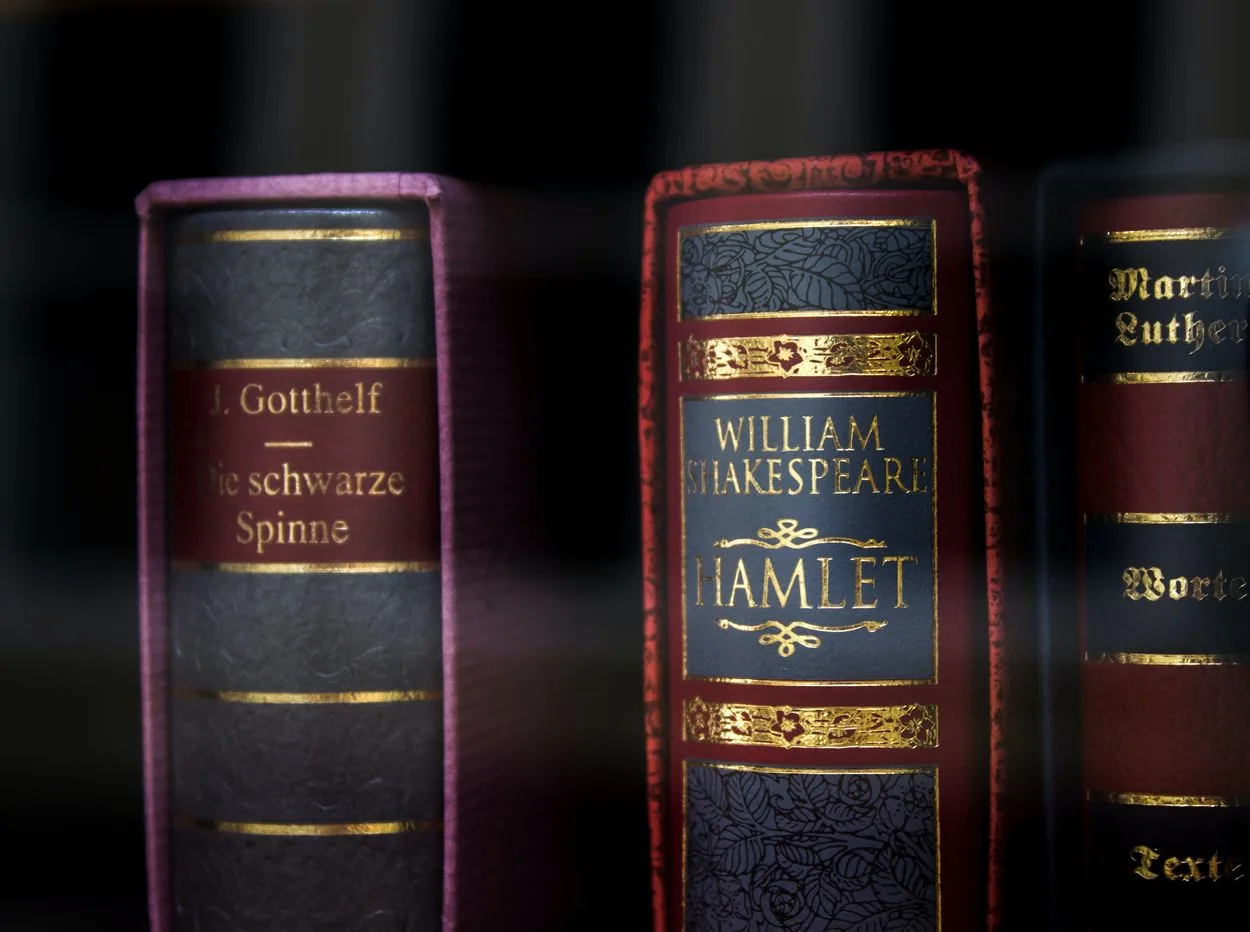Thy and Thine are the archaic forms of “your/yours”. Thy is used before words beginning in consonants whereas Thine is used for words beginning with the letter “h” or vowels. They both in the possessive form.
Thee, thou, and thine are three pronouns not commonly employed in Modern English since they belong to Shakespearean or Old English.
Anyone who has ever read Shakespeare knows these archaic forms’ use. Thee, thou, and thy all are archaic names of you, which can cause confusion for those studying English. This article takes a close examination of thee, thou, thy, and thine to try and identify their distinctions.
Thy and thine are the archaic forms of the plural second pronouns “your” and “yours.”
Three versions of “you” in the archaic Shakespearean language were heavily derived from Greek or Hebrew. “Thee” is the most common type of you. It is accusative or an oblique form of you. Another type of you often used throughout Shakespearean dialect was the possessive “yours,” represented by the word “thine.”
Keep reading to know more.
What does “thou” mean?
Thou is similar to the usage of “you” in Modern English. It’s used to refer to only one person and is often the subject of a verb.
For example:
- Thou hurts me
- Thou art adored by the majority of people.
- Thou art a monster.
Take “Thou hurts me” and notice that “thou” is the subject of the verb “hurt.” It is also being used to refer to the second person the speaker is speaking to.

What is “thee”?
“Thee”, similar to “thou”, also refers to the singular pronoun of “you. However, “thee” refers to its objective form, meaning it is only used when the person you’re referring to is the object of a sentence receiving an action.
For example: I caught you!
The “You” being used is the object to the verb caught. If we were to use “thee,” it would be:
“I caught thee!”
Other examples would be:
- I will fight thee!
- I wed thee
- For thee, we pray.
The Definition of “Thine” and “Thy”
“Thine” and “Thy” are both similar to the possessive “yours” and “your” in the present day. This means they are used to indicate possession.
For example, Thine is the power and glory. (Yours is the power and glory, or The power and glory is yours.)
Thine is also used after nouns or words beginning with a vowel.
For example: Look upon thine own heart. (Look upon your own heart)
Similarly, “thy” is used, but without as much restrictions. Some might even say “thy” is the informal version of “thine,” but there’s nothing to base that on. Either way, “thy” is the archaic possessive form of “your.”
Examples:
- Honor thy mother and father.
- May thy wishes come true.
- I respect thy decisions.
Look at this informative video for a clearer depiction of their differences.
Are thou, thee, thy still used in the present?
They are used only in certain dialects spoken in certain regions in the present.
Words like thou and thy are not entirely obsolete in the modern world. Popular literary works like Shakespeare keep them alive enough to still be used in theater or sometimes academic writings. However, no one uses these words casually, and when they unironically do, they’re often seen as pretentious or stuck up.

How do we use Thee, Thou, Thy, Thine?
“Thou” and “Thee” are both used in place of “you”.
Use “Thou” when using the subjective form of “you.” “Holier than thou.”
Use “Thee” when using the objective form of “you” or when “you” is the recipient of an action. “I caught thee stealing!”
“Thy” and “Thine” are both used in place of “your/yours”
Use “Thine” before a noun or a word beginning with a vowel. “Thine heart is true.”
Use “Thy” for words beginning with consonants. “Love thy neighbor.”
| Word (Archaic) | Word (Modern | When to Use |
| Thou | You | Subjective pronoun |
| Thee | You | Objective pronoun |
| Thy | Your | Possessive form of you. Usually in front of a word beginning With a consonant. |
| Thine | Your/yours | The possessive form of you. Usually in front of a word beginning With a consonant. |
What’s the point of using archaic language in modern times?
Archaic language can be used in modern setting to bring an air of elegance to a literary piece.
Although some believe that the use of archaic languages is now pointless or outdated, many scholars and academics still find significance in using these forms of English.
But it’s not only the scholars that find significance in this language. Many contemporary poets utilize archaism to express their intention more deeply.
Some would argue that using archaism outside of literary analysis in modern times is pretentious. However, some would also argue that when used correctly, archaism can offer a certain elegance to a literary piece.
What are works that use archaic language?

Probably the most popular example of literature that uses archaic language is the works of Shakespeare.
Although archaic language can be traced back to medieval times, its use is mostly associated with William Shakespeare, the famous playwright and poet. A few examples of his work are Hamlet, Othello, Macbeth, and most famously, Romeo and Juliet.
However, it wasn’t just Shakespeare who used the archaic language. Popular authors like Ernest Hemingway and S.T Coleridge also used this form of language.
Here’s an excerpt from Ernest Hemingway’s “For Whom the Bells Toll.”
‘I obscenity in the milk of thy tiredness,’ Agustín said.
Ernest Hemingway, For Whom the Bells Toll
‘Then go and befoul thyself,’ Pilar said to him without heat.
‘Thy mother,’ Agustín replied.”
Conclusion
- “Thou,” “thee,” “thy,” and “thine” are archaic forms of modern English pronouns and possessives.
- They are no longer commonly used in everyday speech but still find a place in literary works. They are particularly found in the writings of authors like Shakespeare and Hemingway.
- “Thou” and “thee” are used in place of “you,” with “thou” as the subjective form and “thee” as the objective form.
- “Thy” and “thine” replace “your” and “yours.” “thy” is used before words starting with consonants, and “thine” before words beginning with vowels or “h.”
- Archaic language, when used appropriately, can add elegance and depth to literary works.
- Works like Shakespeare’s plays, Hemingway’s novels, and Coleridge’s poems incorporate archaic language.
- These archaic terms may seem outdated in everyday conversation. But they continue to be valued by scholars, poets, and playwrights for their unique qualities.
- In summary, “thou,” “thee,” “thy,” and “thine” are remnants of older English forms. They add richness to literary expression and allow us to explore the evolution of language.

